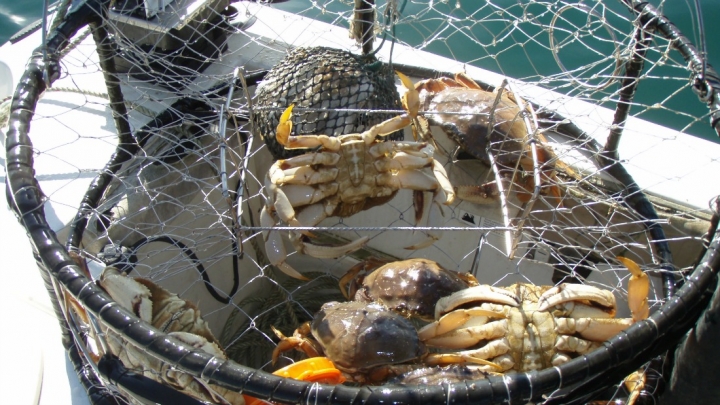After more than a three-week delay, commercial crab fishermen will begin dropping their nets this Saturday in coastal waters from Bodega Head north to the Sonoma-Mendocino county line.
The region was slated to open Nov. 15 but was postponed due to unsafe levels of toxic domoic acid found in crabs. Points south of the Sonoma County coastline opened on schedule last month.
Commercial crabbing further north remains closed until at least Dec. 15; dangerous levels of the neurotoxin in crabs continue to be a problem in waters off Trinidad and Crescent City.
Domoic acid issues have plagued California’s Dungeness crab industry in recent years. Every season dating back to the catastrophic 2015-16 season has dealt with closures to at least some portion of the fishery, with resulting economic fallout for commercial crab fishermen.
A group of fishermen now seeks damages from the oil industry for contributing to the cause of these toxic acid spikes. Domoic acid buildup is a byproduct of harmful algal blooms created by warmer ocean temperatures, which can be exacerbated by climate change.
Last month, attorneys representing the Pacific Coast Federation of Fishermen’s Associations filed a lawsuit against a long list of oil companies, including Chevron, ExxonMobil, Shell and BP. The suit claims that the fossil fuel industry knowingly produces “greenhouse gas pollution that warms the planet, changes our climate, and disrupts the oceans.”

